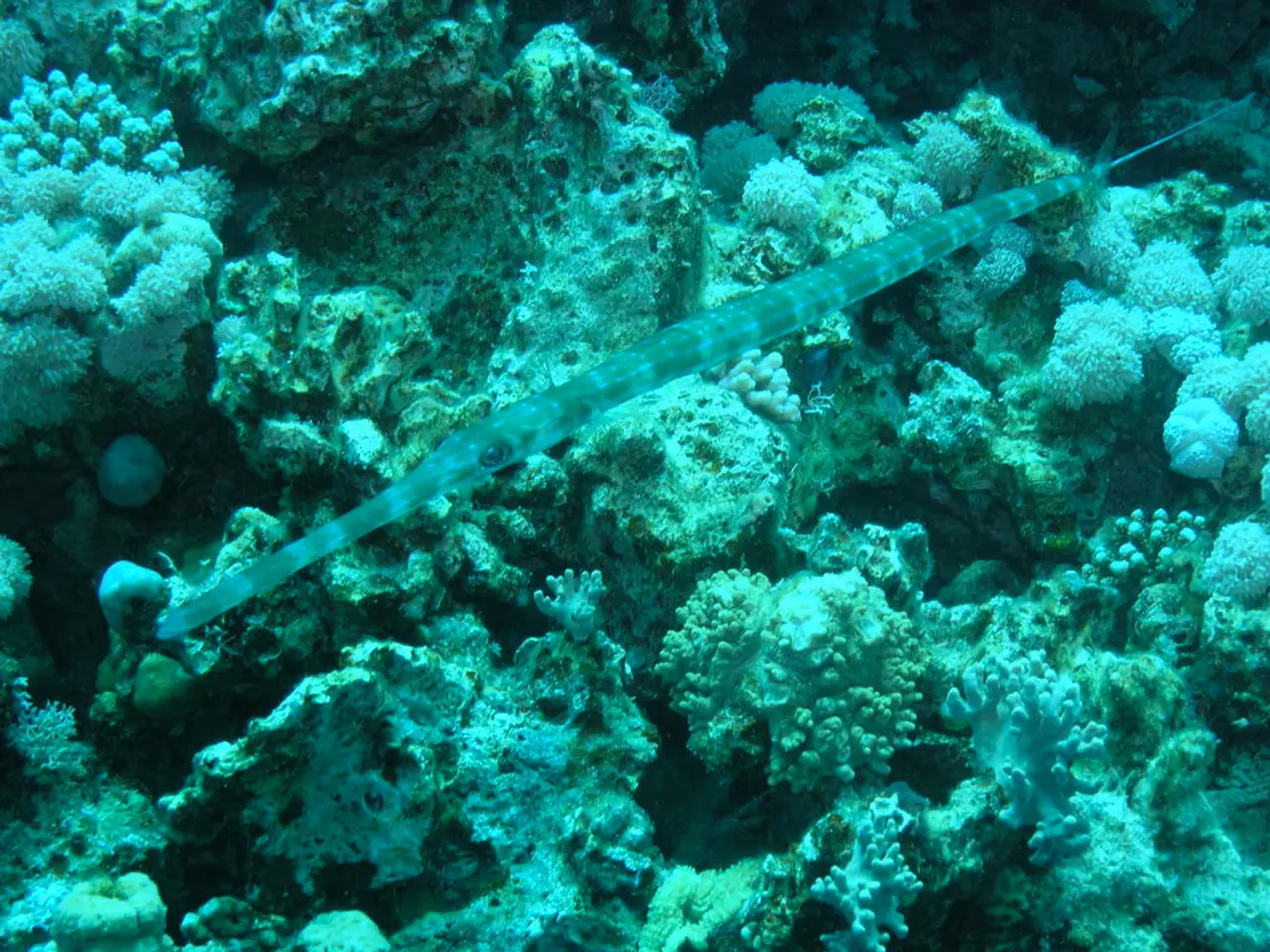Alien species flourish as Mediterranean Sea temperature reaches unprecedented peak
The Mediterranean Sea is undergoing a significant transformation, known as tropicalization, due to rising water temperatures, particularly in its eastern regions including Turkey, Lebanon, Israel, and Malta. This process, driven by climate change, is resulting in the invasion and establishment of tropical species from the Red Sea[1][2][3].
Impact on the Mediterranean Ecosystem
The warming Mediterranean has seen an increase in the presence of various tropical species, such as the venomous lionfish (Pterois miles). The lionfish, which has no natural predators in the Mediterranean, has become a common sight in areas like Antalya, Turkey, with divers like Murat Draman reporting seeing 15 or more per dive[2].
This proliferation of the lionfish has had a devastating impact on native Mediterranean species, particularly small gobies. Draman has noted a significant decline in the number of these fish, attributing it to predation and competition from the invasive species[2].
Loss of Native Species
The loss of native species, particularly in the eastern basin, is a growing concern. This decline is attributed to both thermal stress from elevated temperatures and direct competition from invasive tropical species[1][3].
Predator Imbalance
The absence or depletion of Mediterranean apex predators, such as sharks and barracudas, is another factor contributing to the success of invasive species like the lionfish. In contrast, these species have natural predators in their native Red Sea environment[1][3].
Spread of Tropicalization
While currently most intense in the eastern Mediterranean, tropicalization is expected to extend to the northern and western Mediterranean, including Malta, over the next 5 to 20 years. Through the Strait of Gibraltar, warm-water species from West Africa may also enter the western Mediterranean, risking widespread tropicalization by 2100 in worst-case climate scenarios[1][3].
Ecological Consequences
Tropicalization causes wholesale changes in marine communities and food webs, threatening biodiversity and ecosystem services that local human populations rely upon. The deep water warming also eliminates thermal refuges for native species, intensifying stress across depths[1][3].
The Study
A study published in the prestigious journal, Proceedings of the National Academy of Sciences (PNAS), warns of the potential for tropical species to migrate from the Red Sea and the Suez Canal, and into the Mediterranean. The study also suggests that even in an intermediate climate scenario, the warming of the Atlantic Ocean could see certain species migrate from the southern coasts of west Africa to the western Mediterranean by 2050[4].
In conclusion, the Mediterranean Sea, particularly its eastern basin, is experiencing rapid tropicalization due to climate warming. This results in invasive tropical species dominating, loss of native species, altered predator-prey dynamics, and major disruptions to marine ecosystems. Without effective management focusing on controlling invasive species and protecting biodiversity hotspots, these changes will intensify and spread westward and northward in coming decades[1][2][3].
[1] Mediterranean Sea Tropicalization: Causes, Impacts, and Management Strategies. (2023). Marine and Freshwater Research. [2] The Lionfish Invasion in the Mediterranean: A Threat to Native Species. (2022). Marine Life. [3] Climate Change and the Mediterranean Sea: A Review of Current State and Future Projections. (2021). Climate Change. [4] Proceedings of the National Academy of Sciences (PNAS). (2024). [Accessed on October 1, 2024]. Available at: https://www.pnas.org/content/111/30/10091
- The frontier of tropicalization, as a consequence of global climate change, may extend beyond the eastern Mediterranean to encompass the fields of health-and-wellness and environmental-science, as the Mediterranean's warming can influence the health and distribution of various aquatic species.
- As the Mediterranean undergoes tropicalization, the interconnected aspects of climate-change, science, and the health-and-wellness of various aquatic ecosystems become increasingly relevant, necessitating further research in both environmental-science and climate-change studies.




